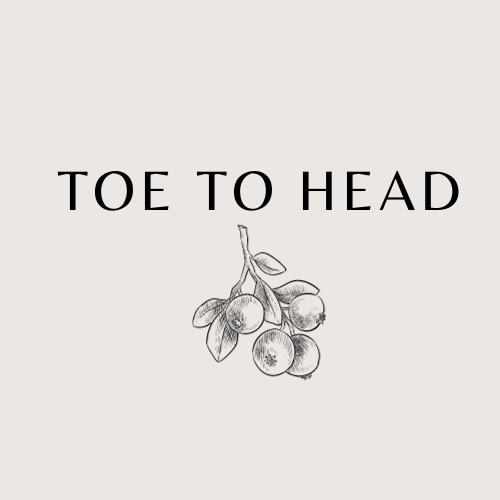In the intricate landscape of our bodies, the endocrine system plays a pivotal role in maintaining balance and harmony. The orchestration of hormones influences everything from our mood and energy levels to metabolism and reproductive functions. Join us as we embark on a deep dive into the fascinating world of hormonal regulation, unraveling the complexities of the endocrine blueprint.
Understanding the Endocrine System
Before we delve into the specifics of hormonal regulation, let’s establish a foundational understanding of the endocrine system. Comprising glands such as the pituitary, thyroid, adrenal, and reproductive organs, the endocrine system communicates through hormones, chemical messengers that travel through the bloodstream to target cells. These hormones regulate various physiological processes, ensuring equilibrium within the body.
Hormonal Regulation: The Intricate Dance
Imagine the endocrine system as a choreographer orchestrating a dance of hormones. Each hormone has a specific role and timing, working in harmony to maintain homeostasis. From the thyroid hormones controlling metabolism to insulin regulating blood sugar, this intricate dance ensures that every bodily function is finely tuned.
The Endocrine Blueprint Unveiled
Let’s uncover the blueprint itself — the process of hormone synthesis. Glands release hormones in response to signals, triggering a cascade of events. From the initial synthesis to release and eventual degradation, this blueprint governs the delicate balance of hormones circulating in our bodies.
Hormonal Imbalances: Causes and Effects
Despite the meticulous orchestration, hormonal imbalances can occur. Explore the common causes of endocrine disorders, from genetic factors to environmental influences. Understanding these imbalances is crucial for maintaining optimal hormonal health and preventing associated complications.
Navigating Hormonal Health
To navigate the complexities of hormonal regulation, we must explore the control mechanisms and signaling pathways at play. Discover how feedback loops, receptors, and signaling cascades contribute to the precise regulation of hormone levels, ensuring a responsive and adaptable endocrine system.
The Impact of Lifestyle on Hormonal Harmony
Our modern lifestyles can disrupt the delicate hormonal balance. Explore the impact of stress, diet, and environmental factors on hormonal harmony. Uncover strategies to mitigate the effects of hormonal disruptors and foster a supportive environment for overall well-being.

What are some common signs of hormonal imbalances that I should look out for?
Common signs include fatigue, mood swings, changes in weight, irregular menstrual cycles (for women), and disruptions in sleep patterns. If you notice persistent symptoms, it’s advisable to consult with a healthcare professional for a thorough evaluation.
Can hormonal imbalances be managed through lifestyle changes alone?
While lifestyle changes can positively influence hormonal balance, it depends on the severity of the imbalance. In some cases, medical intervention may be necessary. However, adopting a healthy lifestyle, including a balanced diet, regular exercise, and stress management, can significantly contribute to hormonal health.
How do stress and hormonal balance relate to each other?
Stress can impact hormonal balance by triggering the release of cortisol, often referred to as the “stress hormone.” Chronic stress can lead to imbalances in other hormones, affecting various bodily functions. Incorporating stress management techniques, such as meditation or deep breathing, can help maintain hormonal equilibrium.
Are there specific foods that support hormonal health?
Yes, certain foods can contribute to hormonal health. Include a variety of nutrient-dense foods in your diet, such as leafy greens, fatty fish rich in omega-3s, and foods high in antioxidants. Additionally, maintaining a balanced intake of proteins, fats, and carbohydrates is essential for overall hormonal well-being.
How does age affect hormonal regulation, especially in women?
Hormonal changes are a natural part of aging, particularly for women during menopause. As women age, estrogen and progesterone levels decline, leading to various physical and emotional changes. Understanding these changes and working with healthcare professionals can help manage the transition more effectively.
Are there natural remedies for hormonal imbalances?
Yes, several natural remedies may help support hormonal balance, such as herbal supplements, adaptogenic herbs, and lifestyle interventions. However, it’s crucial to approach these remedies with caution and consult with a healthcare professional before making significant changes to your routine.
How can I track and monitor my hormonal health at home?
While at-home tools like menstrual cycle tracking apps can provide insights into hormonal patterns, for a comprehensive understanding, consult with a healthcare professional. Blood tests and hormonal panels are effective methods to assess your hormonal health accurately.
Can men experience hormonal imbalances, and if so, what are the symptoms?
Yes, men can experience hormonal imbalances, typically related to changes in testosterone levels. Symptoms may include fatigue, changes in mood, reduced libido, and changes in body composition. Consulting with a healthcare provider is crucial for an accurate diagnosis and appropriate management.
Conclusion: Empowering Yourself with Knowledge
As we conclude our deep dive into hormonal regulation, remember that knowledge is empowering. Understanding the endocrine blueprint equips you with insights into your body’s intricate workings. Whether you seek to enhance your well-being, address hormonal imbalances, or simply satisfy your curiosity, embracing the complexities of hormonal regulation is a journey worth taking.
In future posts, we’ll further explore specific hormones, delve into targeted strategies for hormonal health, and stay abreast of the latest developments in endocrine research. Stay tuned as we continue our exploration of “The Endocrine Blueprint.”



